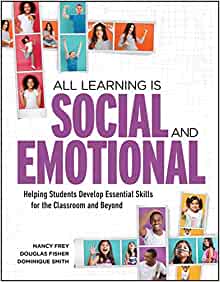 | All Learning is Social and Emotional: Helping Students Develop Essential Skills for the Classroom and Beyond by Nancy Frey, Douglas Fisher, and Dominique Smith
“Along with a toolbox of strategies for addressing 33 essential competencies, you'll find real-life examples highlighting the many opportunities for social and emotional learning within the K–12 academic curriculum. Children’s
social and emotional development is too important to be an add-on or an afterthought, too important to be left to chance. Use this integrated SEL approach to help your students build essential skills that will serve them in the classroom
and throughout their lives.” |
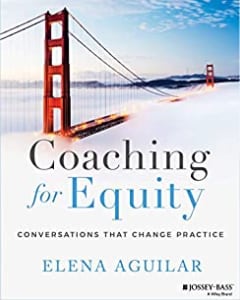 |
Coaching for Equity: Conversations that Change Practice by Elena Aguilar
“If we hope to interrupt educational inequities and create schools in which every child thrives, we must open our hearts
to purposeful conversation and hone our skills to make those conversations effective. With characteristic honesty and wisdom, Elena Aguilar inspires us to commit to transforming our classrooms, lays bare the hidden obstacles to equity,
and helps us see how to overcome these obstacles, one conversation at a time. Coaching for Equity is packed with the resources necessary to implement Transformational Coaching in any organization. Extensive personal narratives demonstrate
what coaching for equity looks like and help us see how we can make every conversation count towards building a more just and equitable world.”
|
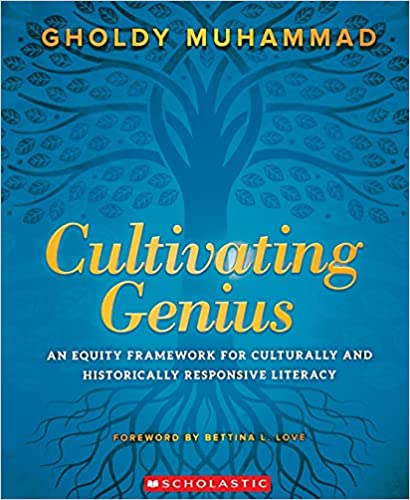 | Cultivating Genius: An Equity Framework for Culturally and Historically Responsive Literacy
by Gholdy Muhammad “In Cultivating Genius, Dr. Gholdy E. Muhammad presents a four-layered equity framework—one that is grounded in history and restores excellence in literacy education. This framework, which she names, Historically Responsive
Literacy, was derived from the study of literacy development within 19th-century Black literacy societies. The framework is essential and universal for all students, especially youth of color, who traditionally have been marginalized
in learning standards, school policies, and classroom practices.” |
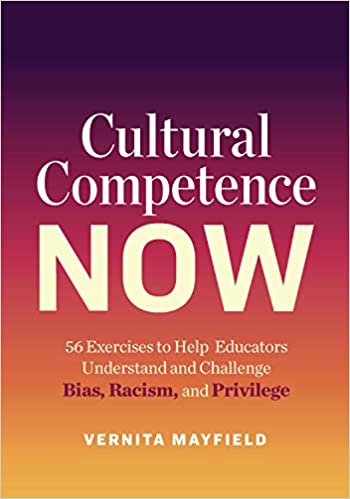 | Cultural Competence NOW: 56 Exercises to Help Educators Understand and Challenge Bias, Racism, and Privilege by Vernita Mayfield “What will it take to create equitable educational opportunities for all students? According to veteran educator Vernita Mayfield, teachers and school leaders need to learn how to recognize culturally embedded narratives about racial
hierarchy and dismantle the systems of privilege and the institutions that perpetuate them with knowledge, action, and advocacy. Cultural Competence Now provides a structure to begin meaningful conversations about race, culture, bias,
privilege, and power within the time constraints of an ordinary school. The 56 exercises include activities, discussions, and readings in which to engage during each of the four quarters of the school year. School leaders will discover
how to facilitate learning through the four steps—awaken and assess; apply and act; analyze and align; and advocate and lead.” |
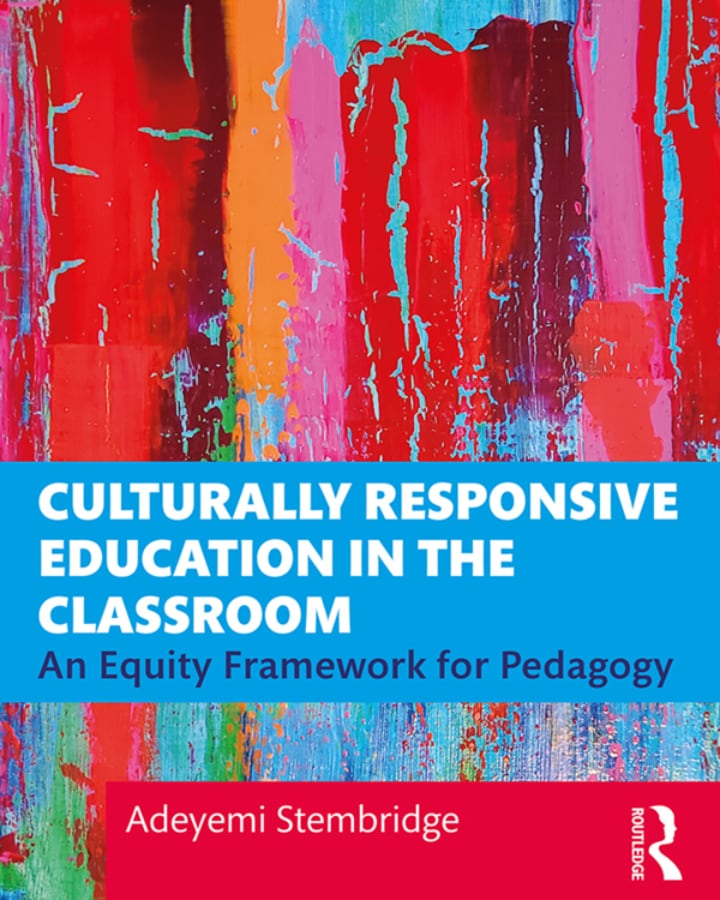 | Culturally Responsive Education in the Classroom: An Equity Framework for Pedagogy by Adeyemi Stembridge “This exciting book helps educators translate the concept of equity into the context of pedagogy
in the K-12 classroom. Providing a practice-oriented framework for understanding what equity entails for both teachers and learners, this book clarifies the theoretical context for equity and shares rich teaching strategies across a range
of content areas and age groups. Unpacking six themes to understand Culturally Responsive Education (CRE), this powerful book helps teachers incorporate equity into behaviors, environments, and meaningful learning opportunities. Culturally
Responsive Education in the Classroom provides specific, practice-based examples to help readers develop a culturally responsive pedagogical mindset for closing equity gaps in student achievement.”
|
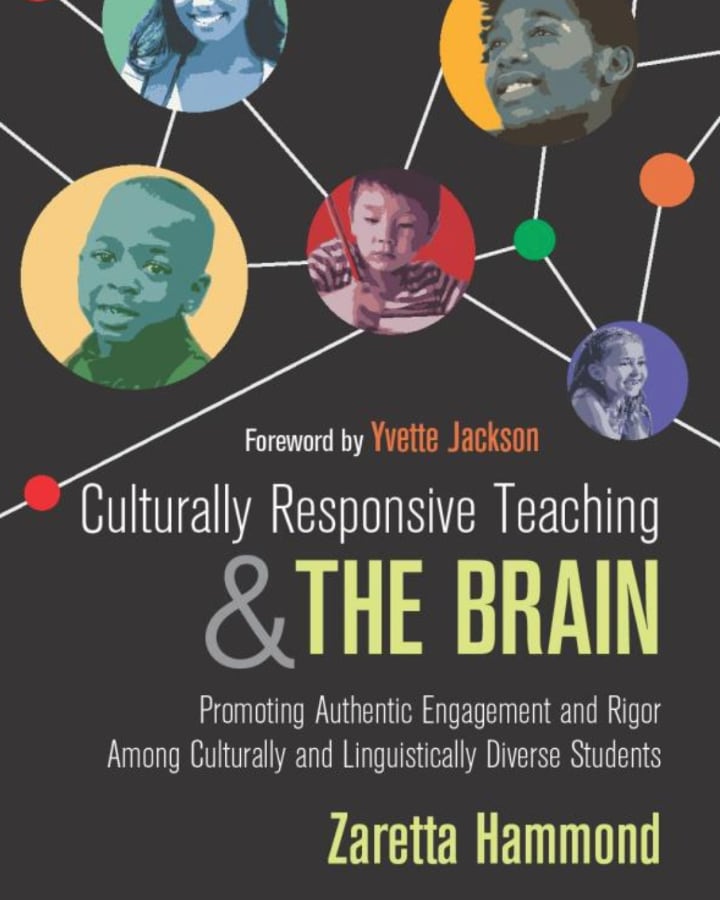 | Culturally Responsive Teaching & the Brain: Promoting Authentic Engagement and Rigor Among Culturally and Linguistically Diverse Students by Zaretta Hammond “To close the achievement gap, diverse classrooms need a proven framework for optimizing student engagement. Culturally responsive instruction has shown promise, but many teachers have struggled with its implementation. In this book,
Zaretta Hammond draws on cutting edge neuroscience research to offer an innovative approach for designing and implementing brain compatible culturally responsive instruction. The book includes: information on how one’s culture
programs the brain to process data and affects learning relationships, ten "key moves" to build students’ learner operating systems and prepare them to become independent learners, and prompts for action and valuable self reflection.” |
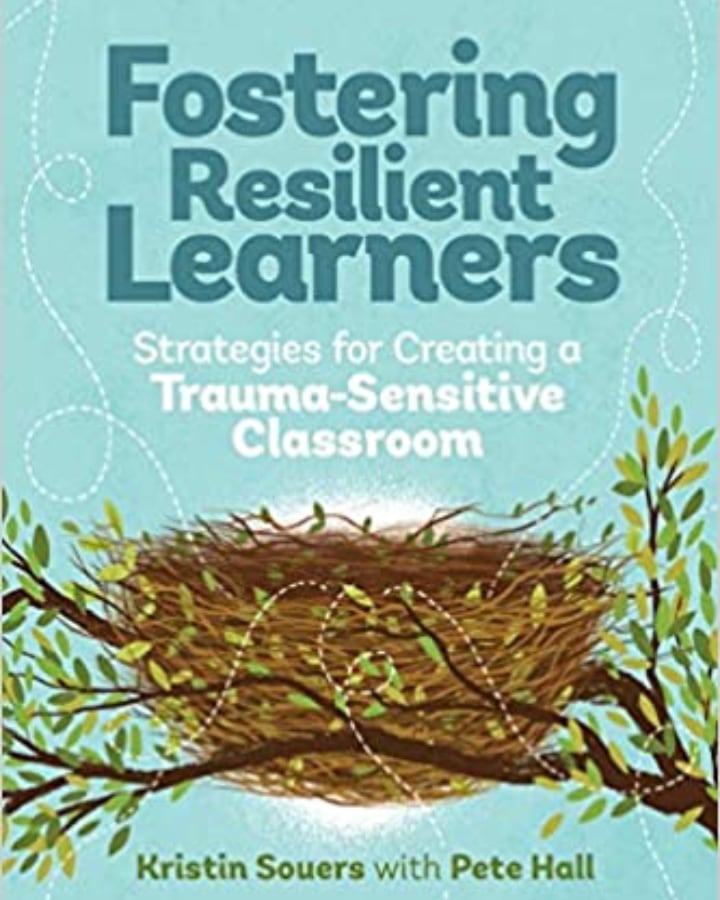 | Fostering Resilient Learners: Strategies for Creating a Trauma-Sensitive Classroom
by Kristin Souers and Pete Hall “Grounded in research and the authors' experience working with trauma-affected students and their teachers, Fostering Resilient Learners will help you cultivate a trauma-sensitive learning environment
for students across all content areas, grade levels, and educational settings. The authors--a mental health therapist and a veteran principal--provide proven, reliable strategies to help you understand what trauma is and how it hinders
the learning, motivation, and success of all students in the classroom; build strong relationships and create a safe space to enable students to learn at high levels; adopt a strengths-based approach that leads you to recalibrate how you
view destructive student behaviors and to perceive what students need to break negative cycles; and head off frustration and burnout with essential self-care techniques that will help you and your students flourish.”
|
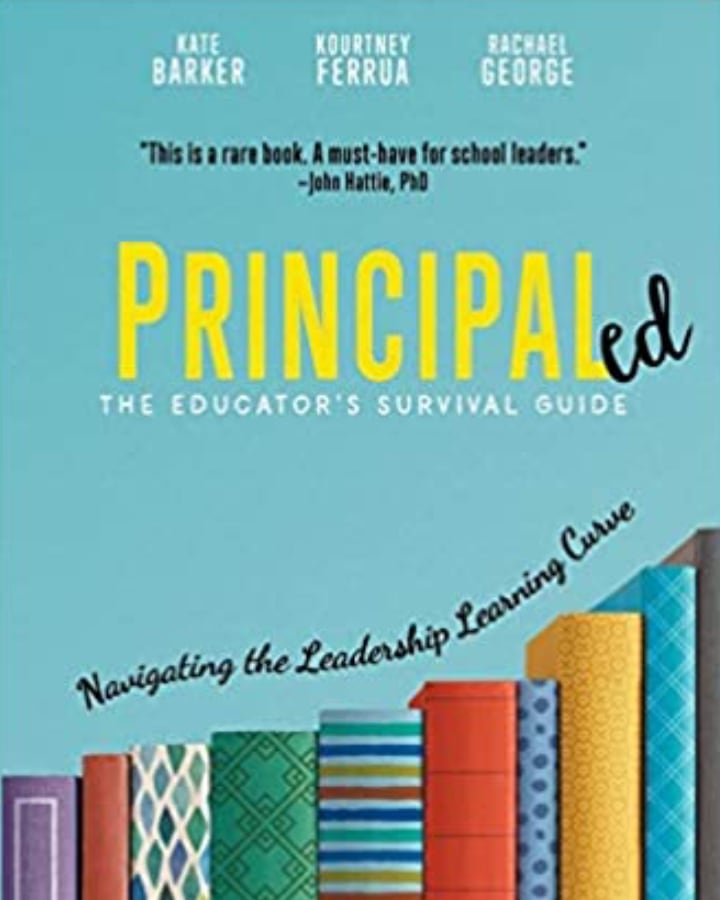 | Principaled: Navigating the Leadership Learning Curve by Kate Barker, Kourtney Ferrua, and Rachael George “With humor, humility, and candor, the authors detail the key ingredients to finding balance as a school leader: taking time to reflect and learn, seeking out mentors, crafting simple and clear goals, and not neglecting self-care.
The authors present a step-by-step approach to facing the challenges of school change and demonstrate that achievement and improving culture are not mutually exclusive goals. Strengthened by their hard-earned wisdom, the dynamic trio
behind Principaled will elevate school leaders and help them find their footing along the route to career contentment.” |